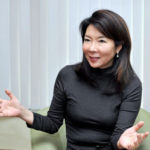To All of BDTI’s Supporters and Participants
Thank you for your support of our many programs and activities at BDTI. As you know, many organizations are switching to telework, and so we think now is a good time for companies to use the transition to telework as an opportunity to train managers in low-cost ways–for example by purchasing our “unlimited-use” e-Learning. ( https://bdti.or.jp/en/e-learning/ ) For a low price of 300,000 yen, the “unlimited use” e-Learning package enables all employees (any number!) at a company or its subsidiaries to learn the most important aspects of the Companies Law, Securities Law, and Corporate Governance (general module, and practice module). This is a total of almost 10 hours of instruction which can be done at one’s own pace at home, and–if we say so ourselves–is very good value for money.
Starting tomorrow, we will be leading by example as we move to a telework arrangement for all of our employees. Someone (myself) will remain in the office during most regular working hours to answer the phone and all employees will be able to respond to your e-mail communication in a normal manner. As we transition to this new working arrangement, we do ask for your patience and understanding and apologize in advance for any inconvenience.
Additionally, you may look forward to several webinars and online training opportunities over Zoom which we will announce as plans are finalized.




